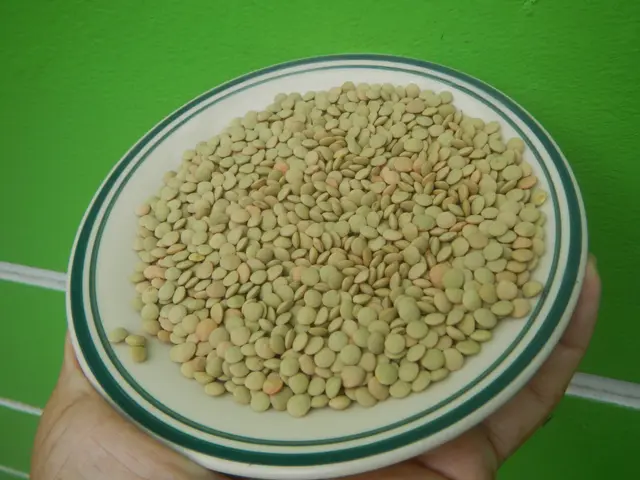Ginseng and Type 2 Diabetes: Is It an Effective Management Strategy?
Type 2 diabetes, a chronic metabolic condition that affects millions worldwide, occurs when a person develops insulin resistance, meaning their cells are unable to respond effectively to insulin [1]. This news article explores the scientifically proven benefits of ginseng, a plant with a rich history in Asian medicine, in managing type 2 diabetes (T2D) and its complications.
Ginseng's multifaceted potential in managing T2D primarily stems from its active compounds called ginsenosides. These saponins have been found to improve insulin sensitivity, regulate glucose metabolism, exhibit anti-inflammatory and antioxidant effects, and potentially benefit lipid metabolism [1][2][3].
One of the key benefits of ginseng is its ability to improve insulin sensitivity and glucose metabolism. Ginsenoside Rb2, a major saponin component of ginseng, helps regulate insulin sensitivity and glucose metabolism, contributing to better glycemic control in T2D [1]. Ginsenosides generally stimulate glucose consumption and possess anti-diabetic properties [2].
Another advantage of ginseng is its potential to slow carbohydrate absorption and support insulin production. Research suggests that ginseng may slow the absorption of carbohydrates from the gut, leading to a moderated postprandial blood glucose rise. It may also support the body's natural insulin production [3].
The anti-inflammatory and antioxidant effects of ginseng are also significant. These effects reduce hyperglycemia-associated damage, including cardiovascular complications often seen in diabetes [1].
While the potential benefits of ginseng in managing T2D are promising, clinical confirmation is still emerging. More well-controlled human trials are needed to establish effective dosing and long-term safety. However, current scientific literature supports ginseng's role in managing T2D via enhancing insulin action, modulating glucose metabolism, and protecting against tissue damage associated with diabetes [1][2][3].
It is important to note that while ginseng may help manage T2D, it should not replace conventional treatment. Individuals with T2D should continue to follow their doctor's advice and maintain a balanced diet and regular exercise, as these lifestyle changes can help reverse T2D in many cases.
Ginseng, a short, slow-growing plant with fleshy roots, has been used medicinally for thousands of years. Most research focuses on the Panax ginseng and P. quinquefolius variants.
In conclusion, while more research is needed, the current scientific literature suggests that ginseng, with its active compounds called ginsenosides, may have a significant role in managing T2D and its complications. By regulating insulin secretion, regulating glucose uptake, reducing inflammation, and lessening the effects of free radicals, ginseng could become a valuable tool in the management of T2D.
- The scientifically proven benefits of ginseng, a plant with a rich history in Asian medicine, include its ability to improve insulin sensitivity and glucose metabolism in managing type 2 diabetes (T2D) and its complications.
- Ginseng's multifaceted potential in T2D management primarily stems from its active compounds called ginsenosides, which have been found to exhibit anti-diabetic properties and potentially benefit lipid metabolism.
- Ginseng may slow the absorption of carbohydrates from the gut, leading to a moderated postprandial blood glucose rise and supporting the body's natural insulin production.
- The anti-inflammatory and antioxidant effects of ginseng reduce hyperglycemia-associated damage, including cardiovascular complications often seen in diabetes.
- While the potential benefits of ginseng in managing T2D are promising, clinical confirmation is still emerging, and more well-controlled human trials are needed to establish effective dosing and long-term safety.
- Although ginseng may help manage T2D, it should not replace conventional treatment. Individuals with T2D should continue to follow their doctor's advice, maintain a balanced diet, and engage in regular exercise as these lifestyle changes can help reverse T2D in many cases.







